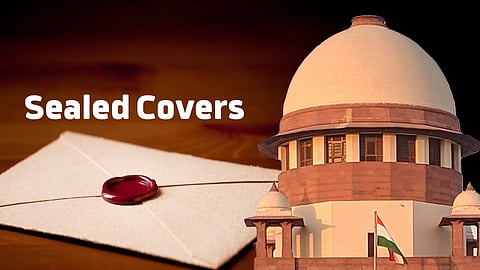
- News
- Columns
- Interviews
- Law Firms
- Apprentice Lawyer
- Legal Jobs
- हिंदी
- ಕನ್ನಡ

When the Central government handed over a sealed cover report in the One Rank One Pension (OROP) case before the Supreme Court today, Chief Justice of India DY Chandrachud on Monday said that sealed covers were against transparency.